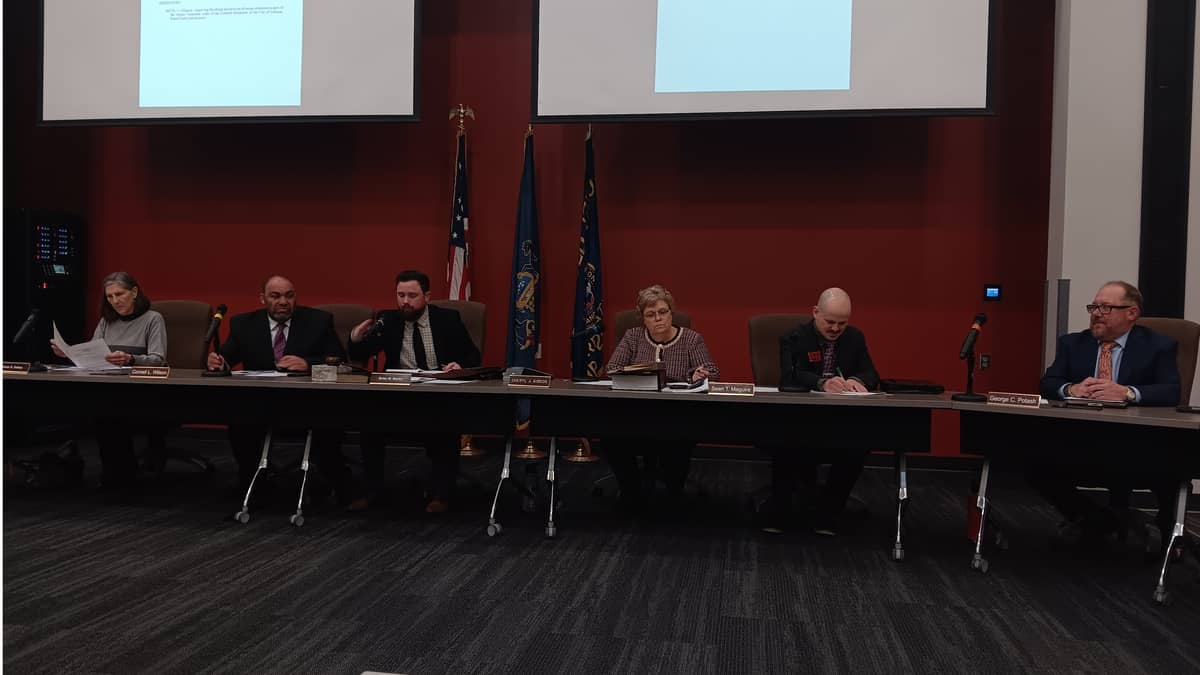This letter to the editor was submitted to LebTown. Read our submission policy here.
I loved basketball when I was a kid. I spent my free time shooting hoops in my parents’ driveway. I played on my elementary, junior high, freshman, and junior varsity teams in school.
I got cut from the varsity team in my junior year because despite my love of the game, I wasn’t very good at it. I was a benchwarmer. I was short, so I had no advantage under the basket. My ball handling skills were rudimentary at best, so playing point guard was not in the cards either.
I was somewhat passable in one skill on the court, though – shooting from way outside. Unfortunately, shooting from way outside was frowned upon back then because there was no such thing as the 3-point shot. Every basket counted for two points, so layups and inside shots were preferred over tossing one up from anywhere greater than 15 feet out.
The 3-pointer changed the game
The NBA adopted the 3-point shot in 1979, the year I got cut from the varsity team. The NCAA fully adopted it in 1986, and high school basketball quickly followed suit.
The 3-pointer was a game changer. Outside shooters were fostered, and teams altered their offensive strategies accordingly. If the 3-pointer existed when I was playing, perhaps I could have squeaked my way onto the varsity squad.
While the 3-point shot is now an integral part of the game, imagine being a coach or player back when it first came on the scene. Would you have taken advantage of it? Of course you would, as it enables you to increase your point total by 50 percent every time your team goes down the court.
Stubbornly refusing to take 3-point shots would be a fool’s errand, putting your team at a distinct disadvantage. You gotta play to win, as they say.
The political 3-point shot
In Pennsylvania, no-excuse mail-in voting is the equivalent of the 3-point shot in its early days. Unfortunately, Republicans have been operating as if this new rule doesn’t exist – and it shows. We’ve routinely been trounced by the Democrats in mail-in voting.
Regardless of whether we like mail-in voting, nothing changes the fact that it’s legal and will remain legal for the foreseeable future. Republicans must embrace a winning mail-in strategy or we’ll suffer the same fate as basketball teams who fail to embrace a 3-point strategy: we’ll continue to lose elections.
The winning strategy is not convincing in-person voters to vote by mail, but to cultivate mail-in votes from Republican voters who might not otherwise show up on Election Day.
Before the advent of no-excuse mail-in voting, Pennsylvania Republicans regularly won the absentee ballot game. Winning the mail-in game is a larger task, but not entirely new or impossible.
A turning point
On January 31, Republican Lynda Schlegel Culver won a state Senate seat in a special election. Culver won the mail-in vote in two of the five counties in her Senate district. In the other three counties, the mail-in margins Democrats earned during previous elections were significantly reduced.
Of note is that under Pennsylvania election law, those who applied to vote by mail in 2022 were automatically mailed a ballot for this special election. As a result, over 10,000 ballots were automatically delivered to Democrat voters, while only around 5,000 were sent to Republicans.
Efforts to cultivate the Republican mail-in vote were smoothly coordinated between the Republican Party of Pennsylvania, five separate Republican county committees, Senate leadership, and the Culver campaign. This cooperation also led to Republicans outperforming Democrats in new mail-in applications by an 8:1 ratio.
It’s clear that some Republicans like voting at home, and will cast their vote from home if made aware of the opportunity to do so. It’s also clear that cooperative efforts by Republican candidates and committees can lead to success.
Pivoting to shoot the 3-pointer
Republicans can no longer remain on the sidelines complaining about the new rules. We must get on the court and utilize the rules to compete in all aspects of the game. By learning from our past success with absentee ballots and emulating the cooperative efforts behind the Culver win, we can use the political 3-point shot to earn more wins.
Republicans have succeeded at this in other states. There’s no reason we can’t do it here in Pennsylvania. We need to pivot to a new strategy, and we need to do it yesterday. If we fail to even attempt the 3-pointer, we so do at our own peril.
Russ Diamond is the state Representative for the 102nd Legislative District, which includes the northern and eastern portions of Lebanon County. He is also a member of the Republican Party of Pennsylvania and the Lebanon County Republican Committee.

























